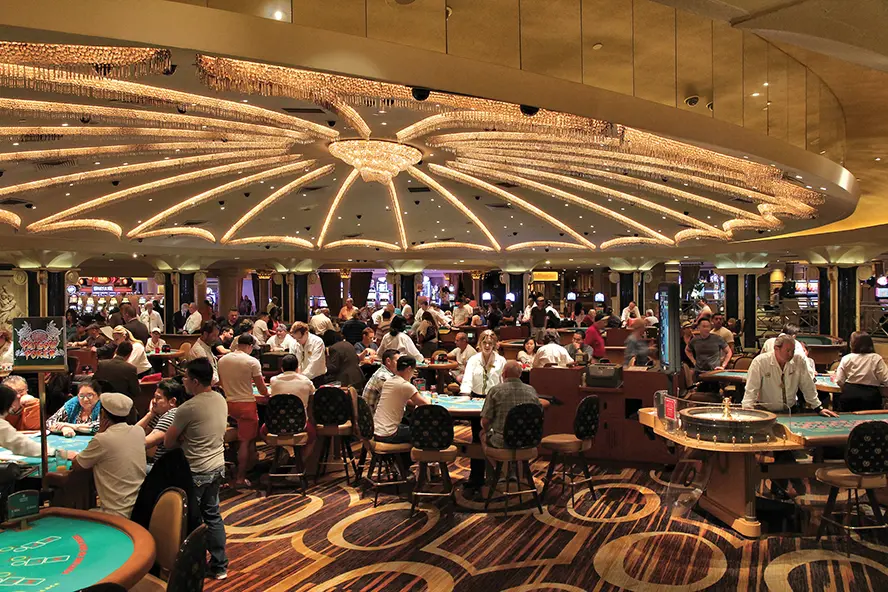In the first of a series of six articles by Charlie Mai – former VP of Domestic and International Sales & Marketing for Star Entertainment Group – to be published by Inside Asian Gaming over the coming months, the concepts of Internal and External Customer Relationship Management and of Change Management in the casino environment are introduced.

Casinos are a global industry. In Australia, casinos are defined as integrated resorts, offering a range of gaming facilities, dining, accommodation and entertainment options, as well as major conference and convention facilities for their customers, many of whom are domestic and international visitors. Today, Australia has 14 casinos, providing a wide range of table and electronic games, as well as non-gaming services and facilities.
The recent findings of public inquiries into casinos in Australia have raised a real question of how well casinos in Australia understand their customers. The implementation of customer relationship management (CRM) and change management initiatives are considered as survival strategies. However, previous research found the failure of CRM and change management initiatives in casinos to be high. People-related issues have emerged as the main cause of the failure of many CRM and change management initiatives in casinos.
This series of articles aims to address these issues by providing casino practitioners with validated and empirical research findings on internal CRM, external CRM, and organizational change management in casinos. This first article will introduce the concepts and definitions of internal and external CRM and change management in casinos. Articles 2 and 3 will investigate internal and external CRM process and practices, while Articles 4 and 5 will cover organizational change management process and practices. Finally, Article 6 will present an integrated model of internal and external CRM change management in casinos and its application in an investigated casino in Australia.
 The meaning of relationship
The meaning of relationship
The essence of internal and external CRM requires an understanding of the meaning of relationship, and the relationship between internal customer satisfaction and external customer satisfaction.
A relationship is defined as the way in which two or more people or things are connected, or the state of being connected. A relationship is characterized by mutual knowledge, some level of symmetry, long term orientation, communication, mutual benefits and satisfaction, mutual trust and fairness, mutual learning, mutual commitment, investments and efforts from both sides, uniqueness and, above all, freedom, and uncertainty. The quality of a relationship is the result of an overall assessment of the strength of a relationship, and the extent to which it meets the needs and expectations of the parties based on a history of successful or unsuccessful encounters.
The quality of a relationship has three dimensions: trust, satisfaction and commitment. These three variables are interrelated. Trust is an element in positive relationships. The outcomes of developing trust include increasing relationship commitment. Satisfaction over time reinforces the perceived reliability and contributes to trust. Satisfaction has a greater effect on commitment. Commitment is an ingredient for successful long-term relationships. There is an indirect effect of satisfaction on commitment linked to its dependency on trust.
 In addition, satisfied employees create satisfied customers. Indeed, satisfied employees perform better and treat customers better, internally and externally, ultimately leading to better overall customer satisfaction. This relationship is an intuitive concept that is supported by the academic and research literature.
In addition, satisfied employees create satisfied customers. Indeed, satisfied employees perform better and treat customers better, internally and externally, ultimately leading to better overall customer satisfaction. This relationship is an intuitive concept that is supported by the academic and research literature.
The relationship between employee satisfaction and customer satisfaction can be explained in terms of employee advocacy and customer orientation and adaptability from front-line employees. Firstly, employee advocacy can be harnessed through the adoption of a loyalty building system that allows a natural progression from employee satisfaction to employee preference to employee loyalty to employee advocacy.
Secondly, customer orientation involves a desire to help customers in a variety of ways, such as making purchasing decisions, assessing customer needs, offering products, providing adequate product and service descriptions, and avoiding deceptive or manipulative tactics, or high- pressure selling. Customer orientation has a strong focus on customer retention and is associated with relationship building.
The third explanation of the relationship is adaptability or adaptive selling and is defined as altering of sales behaviors during a customer interaction or across customer interactions, based on perceived information about the nature of the selling situation. Information and suggestions provided by employees contribute to the customer experience, especially those from employees who are in contact with international high rollers in casinos requiring language assistance.
Internal and external CRM definition
In the CRM literature, the term “CRM” is used to refer to external CRM that deals with external customers. In contrast, internal CRM deals with internal customers, that is: employees. It is referred to with different terms including iCRM, ERM – Employee Relationship Management – and IntCRM. To avoid any potential confusion, this series of articles explicitly uses the terms internal and external CRM when dealing with both internal and external customers.
Similarly, external CRM refers to dealings with external customers and internal CRM refers to dealings with internal customers or employees.
The concept of internal and external CRM can be traced to service marketing literature in the 1980s. More precisely, external CRM has its root in relationship marketing, whereas internal CRM is rooted in employee-focused internal marketing. While external CRM has been widely discussed, internal CRM has not and is still a new concept.
 However, there is a relationship between internal CRM and external CRM. While external CRM seeks to acquire and retain high valued customers, internal CRM seeks to attract and retain high valued employees. Also, successful internal CRM is perhaps the most important factor of successful external CRM.
However, there is a relationship between internal CRM and external CRM. While external CRM seeks to acquire and retain high valued customers, internal CRM seeks to attract and retain high valued employees. Also, successful internal CRM is perhaps the most important factor of successful external CRM.
In the context of casinos, external CRM is defined as customer-centric philosophy that guides strategies for identifying, attracting, differentiating and retaining external customers. Similarly, internal CRM refers to strategies for identifying, attracting, differentiating and retaining internal customers or employees. Overall, a unified definition of internal and external CRM is: employee-and-customer-centric philosophy guiding strategies for identifying, attracting, differentiating and retaining employees and customers, by using multiple processes for achieving mutual benefits for both a casino and its employees and customers.
Organizational change management
Organizational change management is about how an organization adapts to its evolving employee and customer demand. It can be defined as a continuous process of diagnosing readiness for change, implementing change and sustaining change that aims to shift an organization’s direction, structure and capabilities from the current position to the desired position.
In summary, this Article 1 has set the scene for this series of articles about internal and external CRM and organizational change management in casinos in Australia. It has also explored the meaning of relationship and provided the concepts and definitions of internal and external CRM and organizational change management in the context of casinos. The coming Articles 2 and 3 will discuss internal and external CRM process and practices in casinos.





























